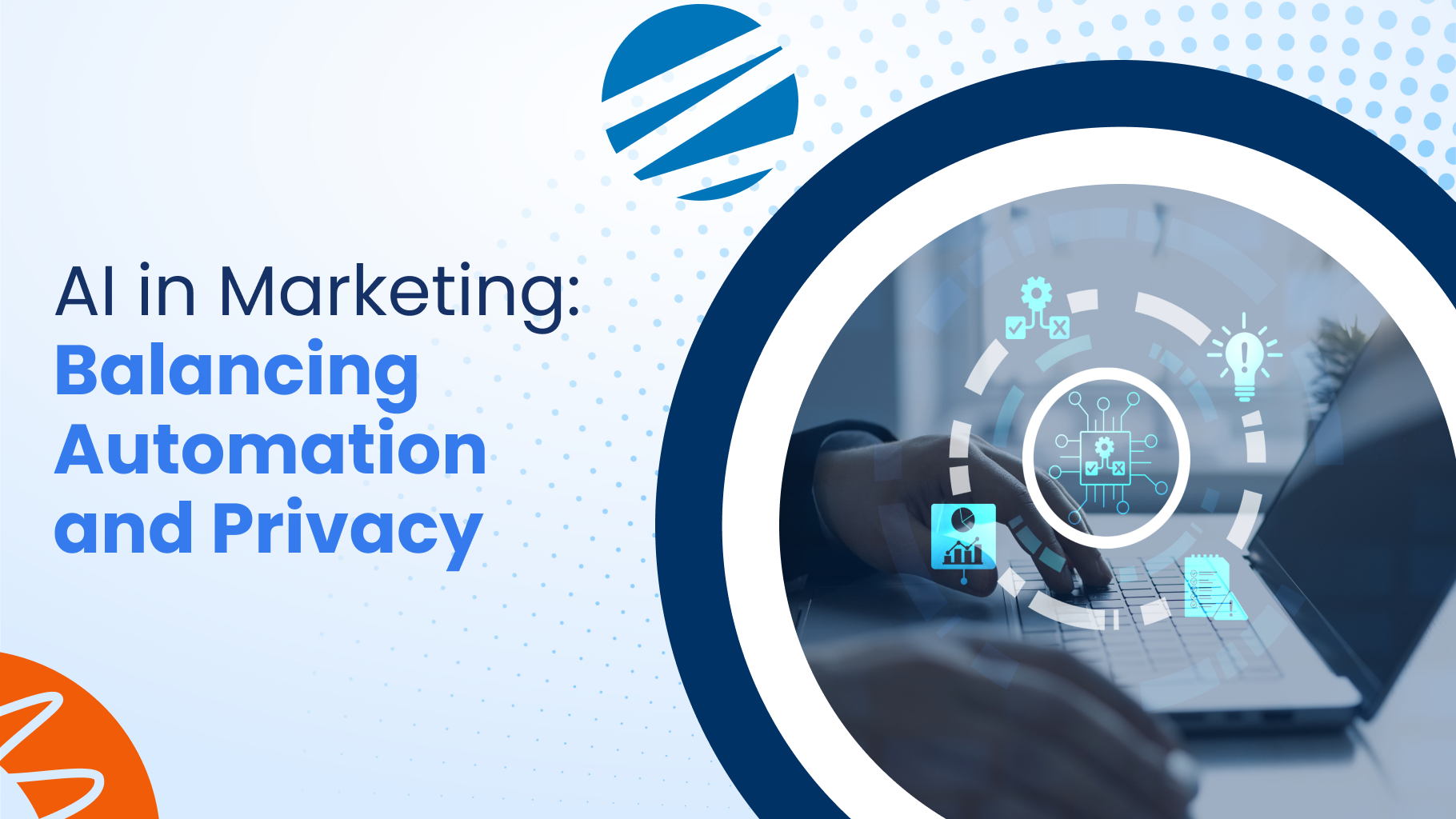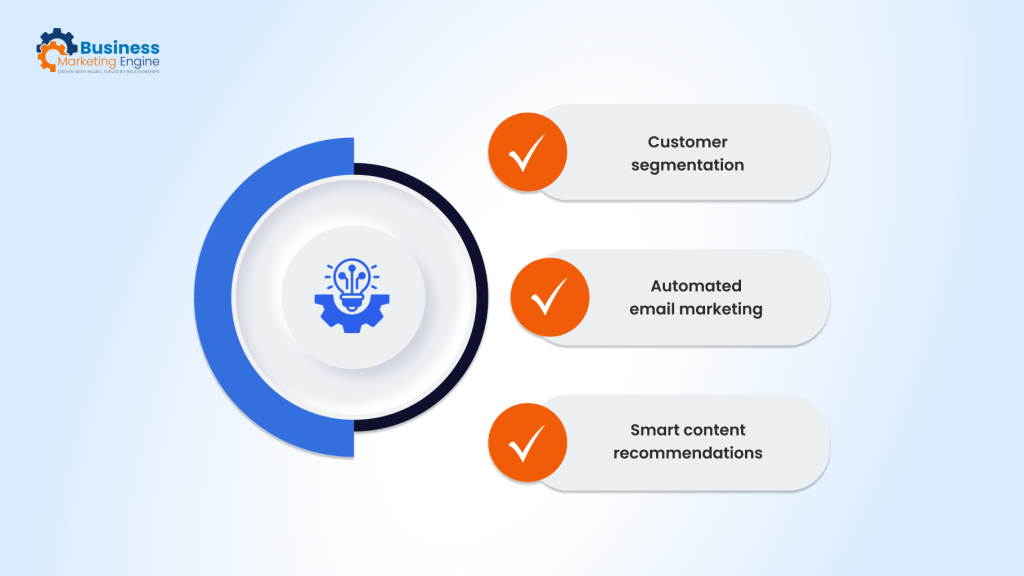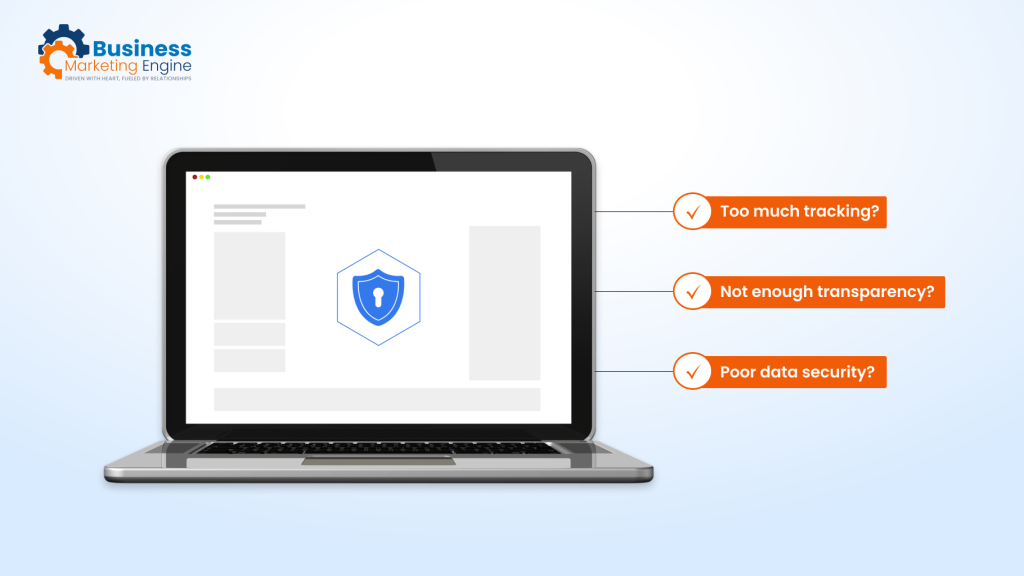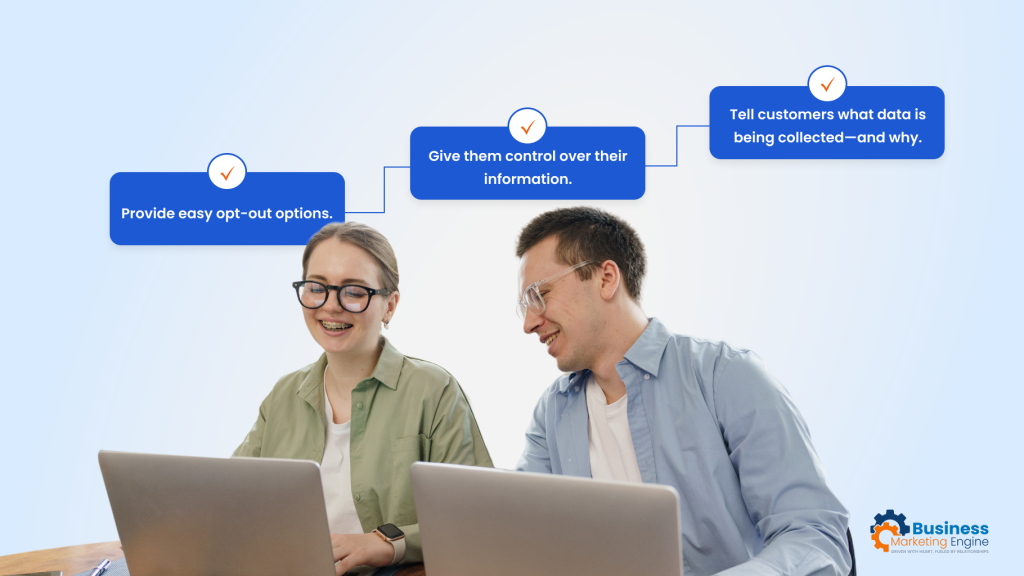Can AI revolutionize marketing without creeping people out?
That’s the challenge.
AI in marketing is making campaigns smarter, faster, and hyper-personalized—but let’s be real: nobody wants to feel like they’re being digitally stalked.
Brands are walking a fine line between automation efficiency and privacy protection, and if they get it wrong, they risk losing consumer trust.
So, how do businesses use AI-driven marketing without making customers feel like their phone is listening? Let’s break it down.
The Role of AI in Marketing Automation
Once upon a time, marketing teams spent hours manually sorting customer data, sending emails, and optimizing campaigns. Now, AI does it all—on autopilot.
AI-Driven Marketing Automation Tools
Imagine a system that segments customers, personalizes emails, and optimizes ad campaigns—all while you sip coffee.
That’s the reality of AI-powered marketing tools.
✔ Customer segmentation: AI groups audiences based on behavior, preferences, and purchase history.
✔ Automated email marketing: Personalized messages reach the right people at the right time.
✔ Smart content recommendations: AI tailors website experiences based on user interactions.
And the best part? It scales effortlessly.
Benefits of Automation for Marketers
AI isn’t just about saving time—it’s about working smarter.
- More conversions, less effort: AI predicts the best time to engage customers.
- Hyper-personalized marketing: Tailored recommendations increase engagement and loyalty.
- Faster campaign optimizations: No more waiting weeks to see what works—AI makes adjustments in real-time.
Marketing automation isn’t just convenient—it’s a game-changer for businesses that want maximum impact with minimal manual effort.
Privacy Concerns in AI-Driven Marketing
Of course, with great automation comes great responsibility. Consumers love personalization—until it feels invasive.
Data Collection and Consumer Trust
AI-driven marketing thrives on data, but customers are increasingly skeptical about how their information is being used.
✔ Too much tracking? Consumers start feeling watched.
✔ Not enough transparency? Trust erodes fast.
✔ Poor data security? PR nightmare.
Brands need to find the balance between personalization and privacy—because once trust is broken, it’s hard to win back.
Regulations Impacting AI Marketing
Governments aren’t blind to AI’s growing influence.
Laws like GDPR and CCPA are setting strict rules for data privacy, and businesses that ignore them are in for a world of legal trouble.
✔ GDPR (Europe): Requires explicit user consent before collecting data.
✔ CCPA (California): Gives consumers control over their personal information.
✔ Other emerging regulations: Countries worldwide are tightening data protection laws—and marketers need to keep up.
Bottom line? AI can’t run wild—brands must ensure their strategies are compliant, ethical, and customer-friendly.
Strategies for Balancing Automation and Privacy
So, how do brands use AI without creeping people out? It’s all about responsible data use and building trust.
Ethical Data Practices
🔹 Data anonymization: Personal details are stripped, so insights remain useful without compromising privacy.
🔹 Encryption: Sensitive customer data stays protected from breaches.
🔹 AI models that prioritize privacy: New technologies let businesses analyze behavior without storing personal data.
When brands show they care about privacy, customers are more willing to engage.
Transparent Data Use
The easiest way to earn trust? Be upfront.
✔ Tell customers what data is being collected—and why.
✔ Give them control over their information.
✔ Provide easy opt-out options.
If brands treat privacy as a priority rather than an afterthought, customers will feel safer—and more willing to interact.
Future Trends in AI Marketing and Privacy
The future of AI in marketing isn’t just smarter automation—it’s privacy-first marketing.
AI-Powered Privacy Tools
Just as AI optimizes marketing, it’s also being used to protect consumer data.
✔ AI-driven cybersecurity tools detect and prevent data breaches.
✔ Privacy-enhancing algorithms allow targeted marketing without exposing personal information.
✔ Decentralized data storage ensures user data isn’t concentrated in one vulnerable spot.
In other words, the future of AI marketing is about using technology to boost privacy, not just personalization.
Final Thoughts: AI, Automation, and Consumer Trust
AI is making marketing smarter, faster, and more efficient—but the brands that win in the long run will be the ones that respect consumer privacy.
Is Your Marketing AI-Driven AND Privacy-First?
At Business Marketing Engine, we help brands leverage AI responsibly, balancing automation and trust for maximum engagement.
👉 Let’s build AI-powered marketing strategies that customers actually trust. Book a free strategy session today!






